The increasing popularity of ChatGPT has led to increased interest in tools that offer generative AI. Although ChatGPT is a widely used tool, there are plenty of other useful alternatives on the market. In this guide, we've listed a number of ChatGPT alternatives that you can try out.
Top AI Alternatives in 2026
In general, the wide selection on the market can be differentiated according to intended use. Depending on the specialization, the following picture emerges:
Popular alternatives: These include in particular Google Gemini for real-time search and increased productivity, with integrations with Google products, and Microsoft Copilot for users within the Microsoft ecosystem, integrated with Office applications. Another great tool is Claude, known for very human-like and creative text generation, and Perplexity AI, which specializes in source-based answers.
Specialized alternatives: A variety of tools have been developed for specific use cases, such as programming, content creation, open source or specific research purposes. These are, for example, the GitHub CoPilot when dealing with code, Jasper AI in marketing and Elicit with a strong focus on research and data collection. Meta AI, on the other hand, integrates with social platforms.
All tools available to users are constantly being developed. In 2025 in particular, major progress was made in AI development. Here are some major changes from well-known providers at a glance:
- ChatGPT: GPT-5 integrates agent workflows, multimodal interactions (text, voice, image, video) and cross-context use as a platform-like AI environment
- Claude: Claude 4 Sonnet and Opus variants with a focus on reasoning quality and controlled security, as well as web research functions
- GitHub co-pilot: supports leading models such as GPT-5, Claude Opus 4, and Google Gemini 2.5 Pro; deeper IDE integration perfect for enterprise teams
- DeepMind Sparrow: Still in private beta (limited testing phase as a research project); focus on security mechanisms and ethical AI interaction
- Neuroflash: Focus on marketing and content use cases through text generation, image workflows and the integration of stable diffusion technologies
- moinAI: professional customer communication in marketing, sales and customer service with consistent, controllable text generation and AI-supported dialogs via chatbots and live chat
1. YouChat
You.com was the first known search engine to integrate a chat assistant into search results and is publicly available. In YouChat, just like in ChatGPT, you can ask questions and then get answers from YouChat. For the answers, YouChat uses recent content from the Internet and lists the sources from which the information for the answer comes. The answers can also be enriched with media such as tables, images, videos, code, or charts. YouChat can be used both free of charge and for a fee. The two paid plans YouPro and YouMax offer access to all available AI models, including GPT-4o and Claude 3.5 Sonnet, and cost $20 and $200 per month. The Pro plan costs around US$ 20/month when billed monthly, but becomes cheaper when billed annually, and offers up to ~64000 tokens in use.
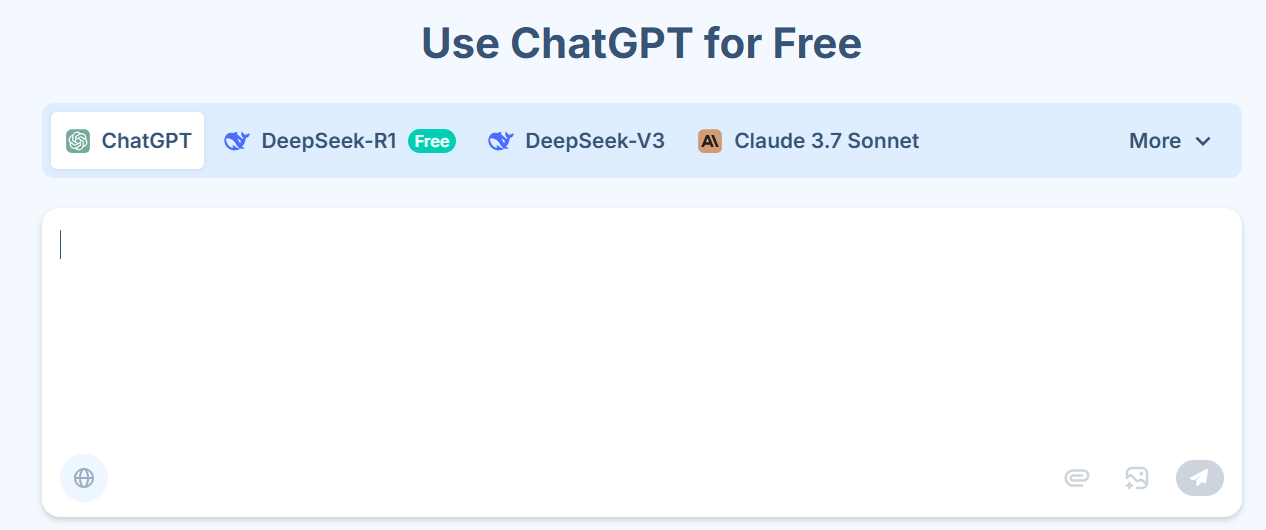
2. Jasper Chat
Another ChatGPT alternative is Jasper Chat. Jasper is a powerful tool, particularly for marketing teams, for creating brand-compliant content and integrating SEO tools. In response to ChatGPT, Jasper released the Jasper Chat feature approximately three weeks later. The platform accesses GPT models, including GPT-4 in higher-quality plans, via the OpenAI API, and supplements them with its own workflows, templates, and brand/sound control. In addition, prompt optimizations and task-specific structures are incorporated. It offers a high level of accuracy and relevance in the generated content, e.g. texts for blog articles, ads, social media and more. Jasper ensures enterprise-level data protection and provides an LLM-agnostic architecture that prioritizes data protection and privacy. Jasper Chat is paid and users pay $59/month for the Pro plan. The price for the business rate is calculated individually. Users often compare Jasper's costs with free alternatives such as ChatGPT, primarily due to the advanced features and higher prices as a drawback.

3. Microsoft Copilot (formerly Bing Chat)
It was only a matter of time before Microsoft also followed suit with an integration of OpenAI's ChatGPT technology. Copilot (formerly Bing Chat) as an AI productivity platform, is much more than just a search. As a generative assistant in the Microsoft 365 version, Copilot is deeply integrated with Office apps so that applications such as Word, Excel, Outlook, and Teams are integrated when researching and analyzing data. There is also a separate search component (“Copilot Search”). Microsoft Copilot integrates OpenAI models such as GPT-4o and GPT-5-based variants and uses them context-based. Using multi-model routing, the appropriate model is selected from the GPT versions, depending on the application and requirements. The chatbot answers the user's question with an answer and suitable search results. The application has access to the Internet and uses external websites to generate chat answers and can therefore answer questions on current topics. Praiseworthy is the On-device AI Feature for Windows 11, which allows text generation in the Notepad app with local AI models even without an Internet connection or Microsoft 365 subscription. Using Copilot requires a Microsoft account and is available either in a free version or in the Copilot Pro commercial plan (€22/month/user). Users with a separate Microsoft 365 personal or family subscription can also use Copilot on desktop versions of these apps.

4. Google Gemini (formerly Google Bard)
Google is positioning itself in 2026 with Gemini as a central provider of AI applications. The tech giant seamlessly integrates multimodal models into the cloud, workspace, and developer ecosystem and enables productive use of AI at consumer to enterprise levels. Gemini 3, the latest model from Google, combines all previous capabilities of the Gemini series, making it possible to implement complex ideas and tasks with deep understanding. Previously, Gemini 1 with multimodality and a long context window and Gemini 2 with agent-enabled functions and advanced reasoning laid the basis for Gemini 2.5 Pro. All models are based on a large language model, each version with improved features for multilingualism, reasoning, and coding capabilities. Because of the multimodality of the model, text, audio, video, and code are supported and is ideal for creative writing as well as technical applications.

Gemini is available globally in numerous countries and in over 40 languages, including German. Access to basic functions with limited usage options is available in the free version “Gemini Advanced” or “Google AI Pro,” is $19.99/month and gives users extended access to more powerful models and deep research features.
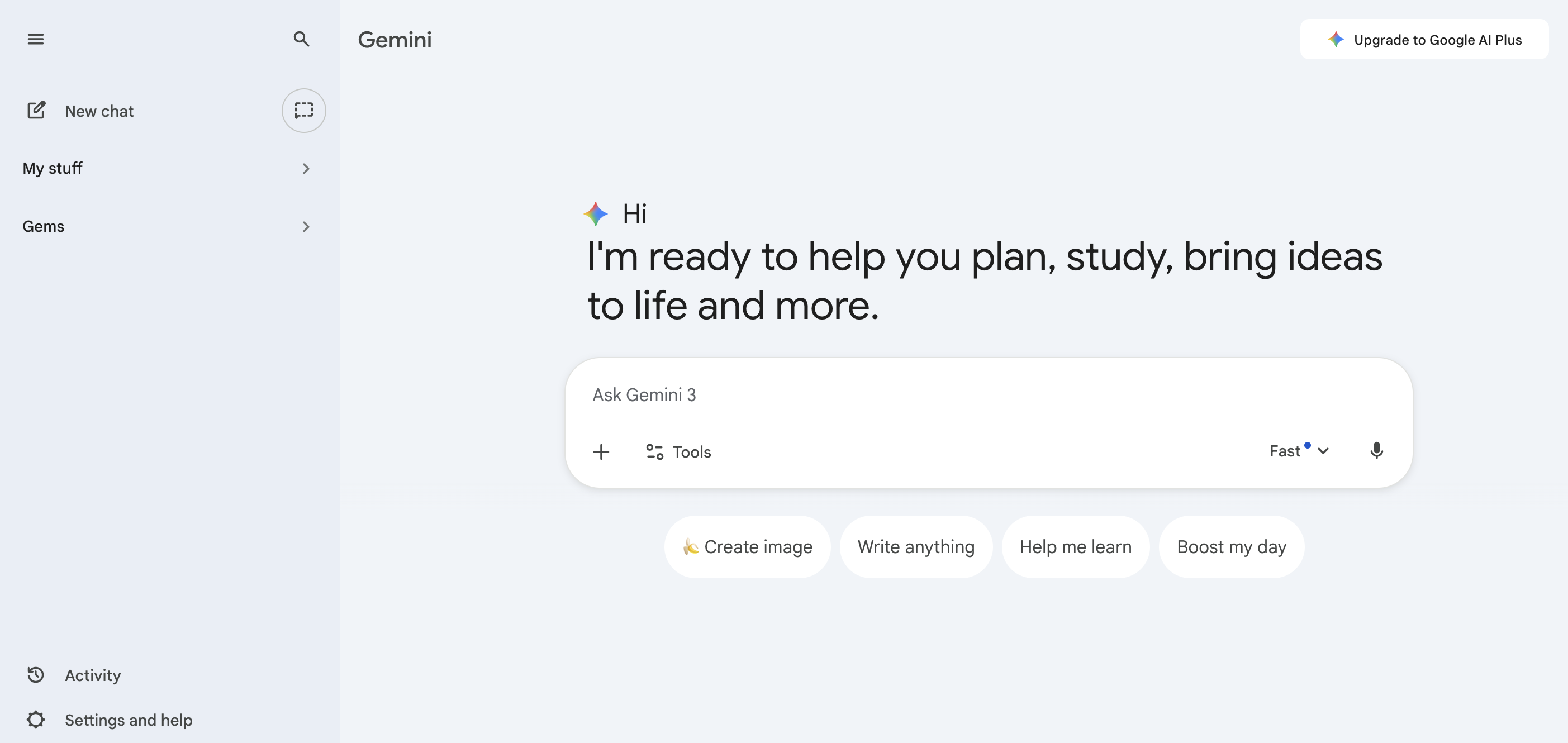
5. ChatFlash from Neuroflash
A frequently recommended alternative is the chatbot from the Neuroflash platform from Hamburg (Just like moinAI). Neuroflash continues to focus on German-language, consistent, brand-compliant text generation with its chatbot. ChatFlash is available both via an integrated editor and via a browser extension that can be used directly in applications such as Google Docs, emails, or social media. With ChatFlash, users can create content in their own style and based on uploaded knowledge. Depending on the plan, the platform uses various models (including GPT models, Claude, Gemini). The provider offers free use with word limits, while the paid plans (Standard/Starter/Pro, etc.) vary significantly and are typically around €30 per month for standard levels and around 67—80 € per month for Pro levels.
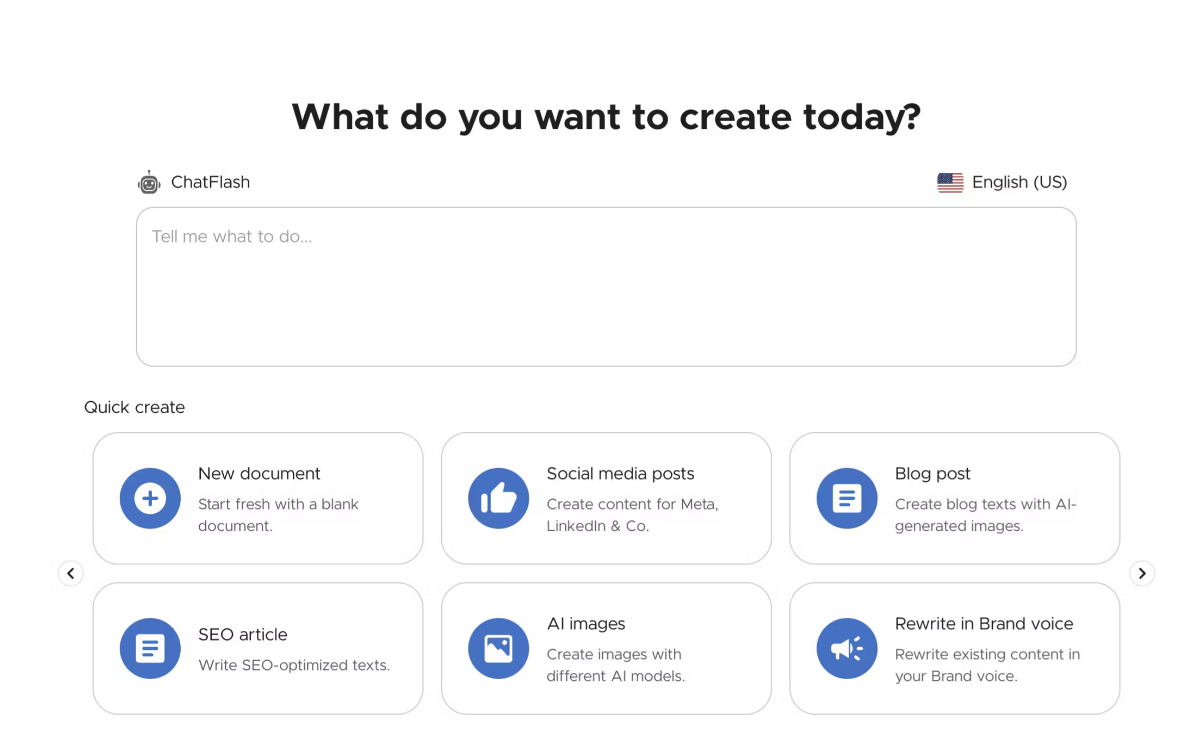
6. Chatsonic
Chatsonic is an AI chatbot and part of the Writesonic platform for AI‑assisted text and content generation. The application provides top alternatives to ChatGPT for English texts, in particular for marketing and creative tasks. The tool uses various multimodal AI models, including GPT‑4o, Claude 3.5, and Google's Gemini models, for answering and issuing various requests. Chatsonic offers various personas to choose from, including poets and accountants. At the same time, Chatsonic offers a live web search/internet integration, which provides up-to-date information in the answers. Chatsonic also supports 25+ languages, including German. For use, there is a free level with limited scope and several paid plans, which vary depending on requirements and volume of words.
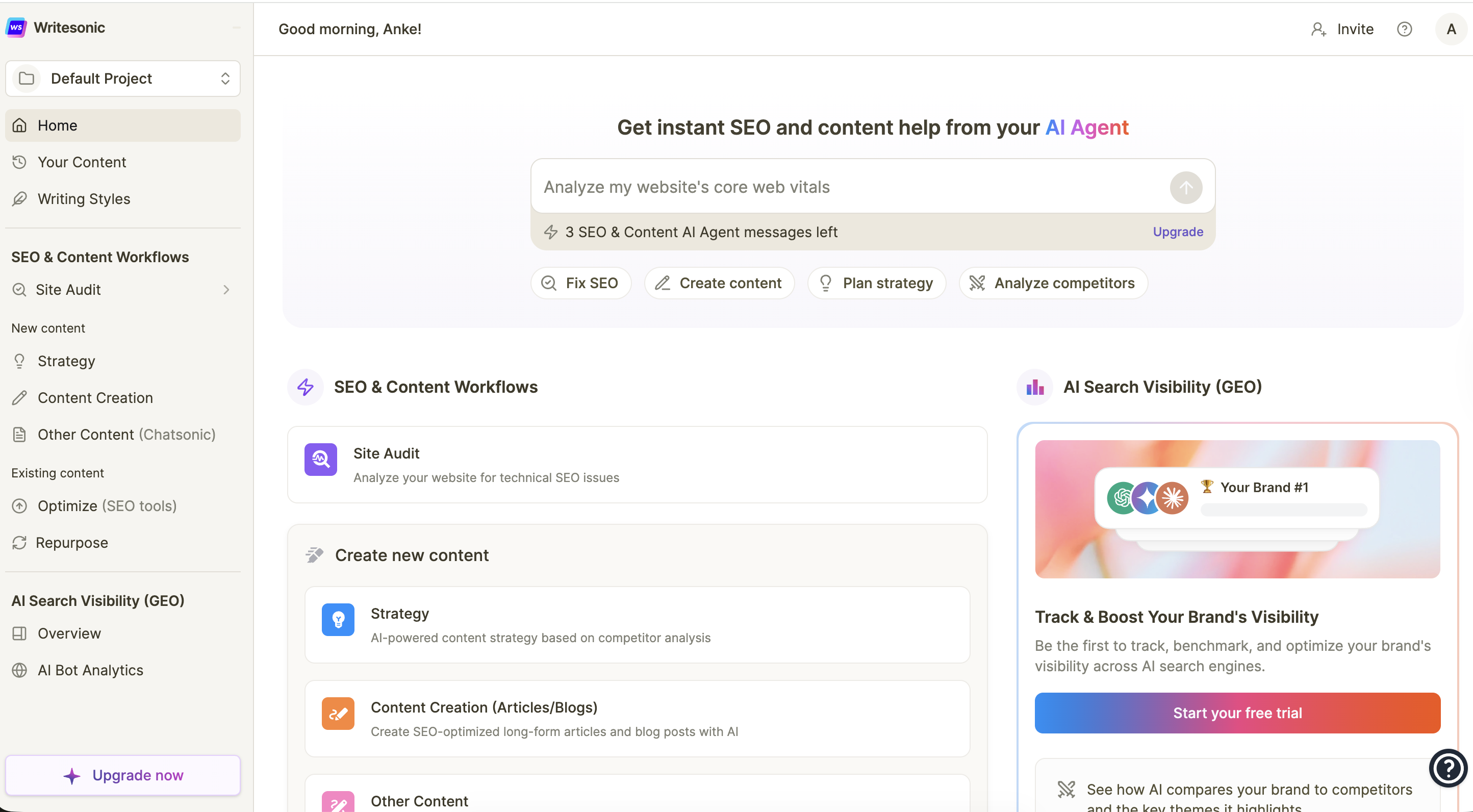
7. Claude (Anthropic)
Claude is a conversational AI tool from Anthropic AI, a research and security laboratory founded by former OpenAI employees. Claude is able to handle a wide range of conversational and word processing tasks with a high level of reliability and predictability. According to tests such as SimpleQA, a test for large language models such as GPT and Claude, Claude models prefer to leave questions that they cannot answer exactly open rather than provide inaccurate answers — while ChatGPT is more likely to invent answers. In addition, Claude can implement instructions on personality, tone of voice, and behavior.

Claude is available in several model versions (Anthropic, 2025):
- Claude 4.5 (opus, sonnet, haiku) as the latest generation, released in November 2025
- Claude Code specializes in programming
- Previous versions: Claude 3 Haiku/3.5 Haiku, Claude 3.5 Sonnet/3.7 strong in text generation and for complex tasks
The latest generation, Claude 4, includes the Opus, Sonnet and Haiku models. Since 2025, they have offered advanced features such as code execution, Model Context Protocol, and a Files API. Using the MCP function, Claude can plan tasks over the long term and remember previous contexts in order to pursue structured solutions. Read more about MCP in our article:”What is an MCP server? Simply explained with a practical example.” MCP is available to all paying users on Claude's Pro and Max subscriptions.
Anthropic is also developing the function Computer-use continue. It allows Claude to control the mouse and fill out forms. The AI can therefore control processes autonomously. Development is carried out as part of a beta phase and typically in isolated or developer environments.
8. Perplexity AI
Perplexity is an AI-supported research and answer tool: It combines automatic web search with language model output and provides answers with sources instead of just links. It provides natural language features similar to Chat. However, Perplexity accesses current information from the Internet in real time and returns precise answers with appropriate sources. So it works more like an academic and scientific search engine than an author, but still generates original content.
Perplexity uses both own models from the Sonar family as well as external large language models from providers such as OpenAI (e.g. GPT-5.1) and Anthropic (Claude Sonnet 4.5, Claude Opus 4.5) for various tasks. Pro and Max subscribers can choose between them.
With the new deep research feature Sonar Deep Research Perplexity is once again raising its research capabilities to a whole new level: Within minutes, the tool analyses hundreds of sources, creates comprehensive reports and enables export as a PDF — ideal for complex topics in finance or technology.
The AI Perplexity — like ChatGPT — can change previous answers, for example if you ask them to write the text a bit shorter, funnier or more creative. However, ChatGPT is more sensitive in comparison and can understand subtleties better, making the experience quite different. The Free Plan by Perplexity offers unlimited basic searches and limited access to Pro‑Searches, as well as limited file uploads and automatically selected models. The Pro Plan provides Pro search, advanced AI models, and image and video generation with higher upload limits for $20 a month.
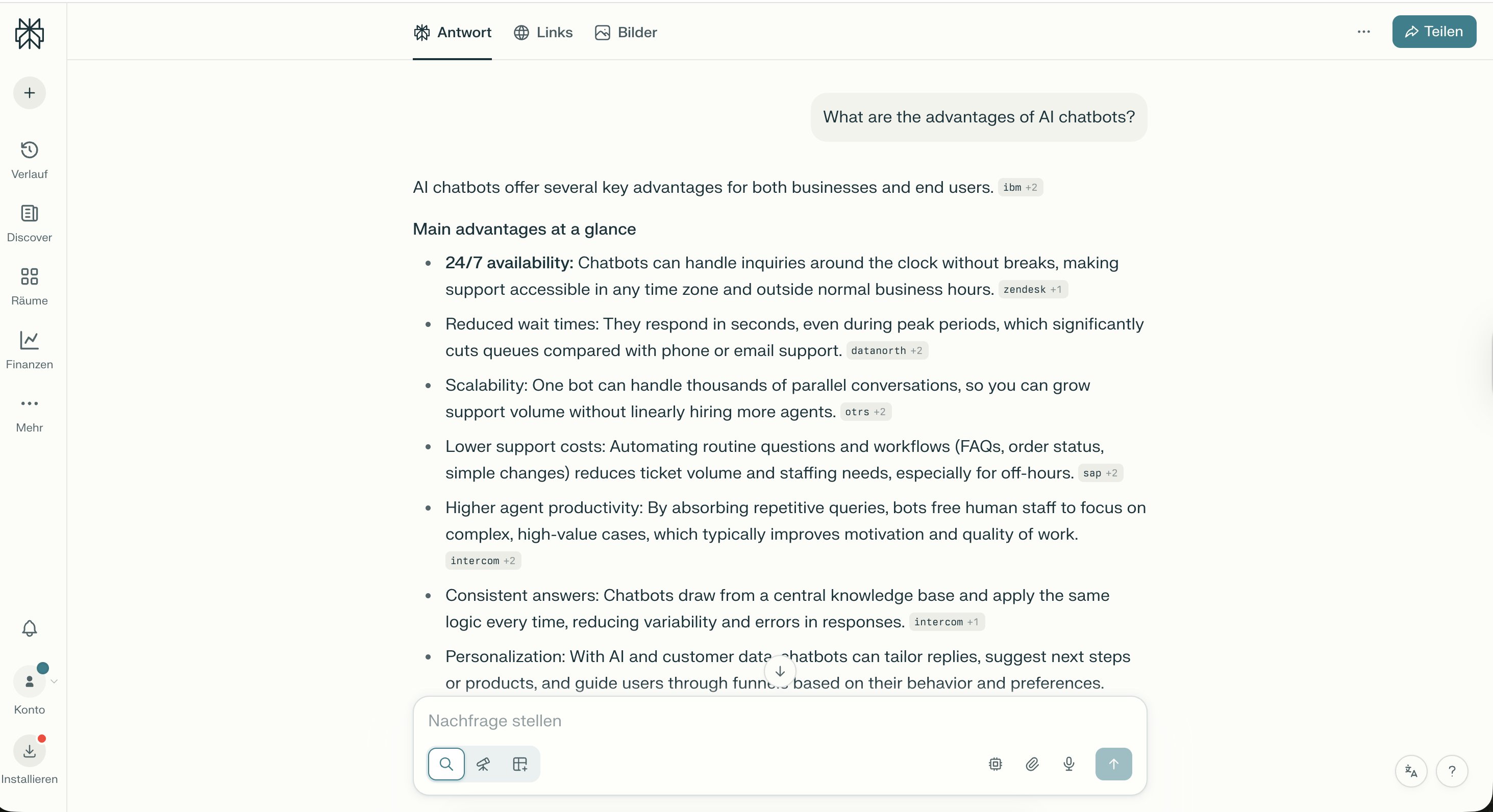
Would you like more information? In the article Perplexity or ChatGPT we compare the two tools in detail.
9. GitHub Copilot
GitHub Copilot is a good alternative to ChatGPT when it comes to generating code instead of text. It is an extension for popular editors such as Neovim, JetBrains IDEs, Visual Studio, and Visual Studio Code. With support for various programming languages and frameworks, including Python, JavaScript, TypeScript, Ruby, Go, C#, and C++, developers can create high-quality code efficiently and quickly.
Since 2025, GitHub Copilot has been using several advanced AI models, including (depending on plan and availability):
- GPT-5, GPT-5.1 and GPT-5.2 (including Codex variants) suitable for complex logic and deep understanding and coding
- Claude Haiku 4.5, Claude Opus 4.1/4.5, Claude Sonnet 4/4.5 for precise and context-aware suggestions
- Gemini 2.5 Pro, Gemini : strong in mathematical and scientific requirements
GitHub Copilot has a free trial period for every user. The tool is also free for verified students, teachers, and maintainers of popular open-source projects. GitHub Copilot already has over 20 million users worldwide, including over 90% of the Fortune 100 companies (see Report here).

10. DeepMind Sparrow
In September 2022, DeepMind, a subsidiary of Google, presented an AI chatbot called “Sparrow” (in German “Spatz”). Sparrow is based on Deepminds language model Chinchilla and is an experimental model, a “proof of concept”, which is intended to help chatbots to make it more helpful, factually correct and safer. Similar to ChatGPT, it is trained using reinforced learning (RL), with real people providing feedback on Sparrow's spending. The model follows 23 established rules developed by DeepMind researchers as well as experts from Caltech, the University of Toronto and University College Dublin. An interesting feature of Sparrow is that it includes Internet sources such as Wikipedia articles in its answers. However, Sparrow has not yet been made publicly available and there is currently no information about a planned public beta version or a wider rollout.

Bonus: DeepSeek
DeepSeek is a Open-source KI project from China, which stands out in particular due to its fast and inexpensive training methods. The model is based on a “mixture-of-experts” architecture with a context window of 128000 tokens and is available online free of charge. DeepSeek can be used under the MIT license, which gives companies more independence from closed systems such as ChatGPT. No account is required to use it, all you have to do is open the chat and ask a question. Models currently include DeepSeek-v3, R1, and the Coder series, and compete with leading proprietary systems. The latest model is DeepSeek v3.2, suitable for creative and professional writing, coding, learning and brainstorming. It supports over 50 languages and DeepSeek v3.2 is comparable to GPT-4 in most benchmarks. DeepSeek's recommendation: Start with v3.2 and switch to R1, the deep reasoning model, for complex math/code problems.
Here is an overview of all the tools mentioned
10 more alternatives to ChatGPT
The alternatives mentioned above are just a selection of the wide range of AI tools on the market. Additional providers as alternatives to ChatGPT and the options mentioned above are briefly and concisely listed here. Here are 10 more helpful tools, including information on their functions and costs:
Conclusion
In Germany, ChatGPT is, according to the Digital index 2024/2025 The D21 initiative is by far the best-known and most used AI model. However, the variety of alternatives available allows users to AI tools Try it out for various applications and choose the one that best suits your individual requirements. Whether it's creating high-quality articles, generating code, or helping you find information, there's a wide range of options that provide a ChatGPT-like experience. Therefore, the optimal choice depends heavily on the user's preferences.
Continuous development, including the introduction of GPT-5 in August 2025, the integration of voice and video functions and the introduction of the “ChatGPT Agent” to perform complex tasks independently, further strengthens ChatGPT's market leadership. However, we would like to dispel some prejudices and emphasize that ChatGPT is not intended to replace all other chatbots, tools, or professions.
It is important to understand that ChatGPT has impressive functionalities, but is only partially suitable for direct use in companies' customer communication. Controlling the generated texts is difficult, and answers can vary significantly. This risk must be avoided in professional communication processes. For powerful workspace integrations that companies need, specialized tools like moinAI are the better choice compared to general-purpose chatbots
moinAI This is where it starts: The platform enables companies to use AI specifically for secure and consistent customer communication. moinAI combines versatility with ease of use, so that companies can control AI in a targeted manner while ensuring the quality and consistency of their communication.
Experience the future of customer communication with moinAI and create an AI chatbot for your company website without obligation, securely and efficiently, of course.
[[CTA headline="Looking for an AI alternative for customer communication?” subline="Experience the future of customer communication with moinAI and create an AI chatbot for your company website without obligation, securely and efficiently, of course.” button="Test now "]]




.svg)




